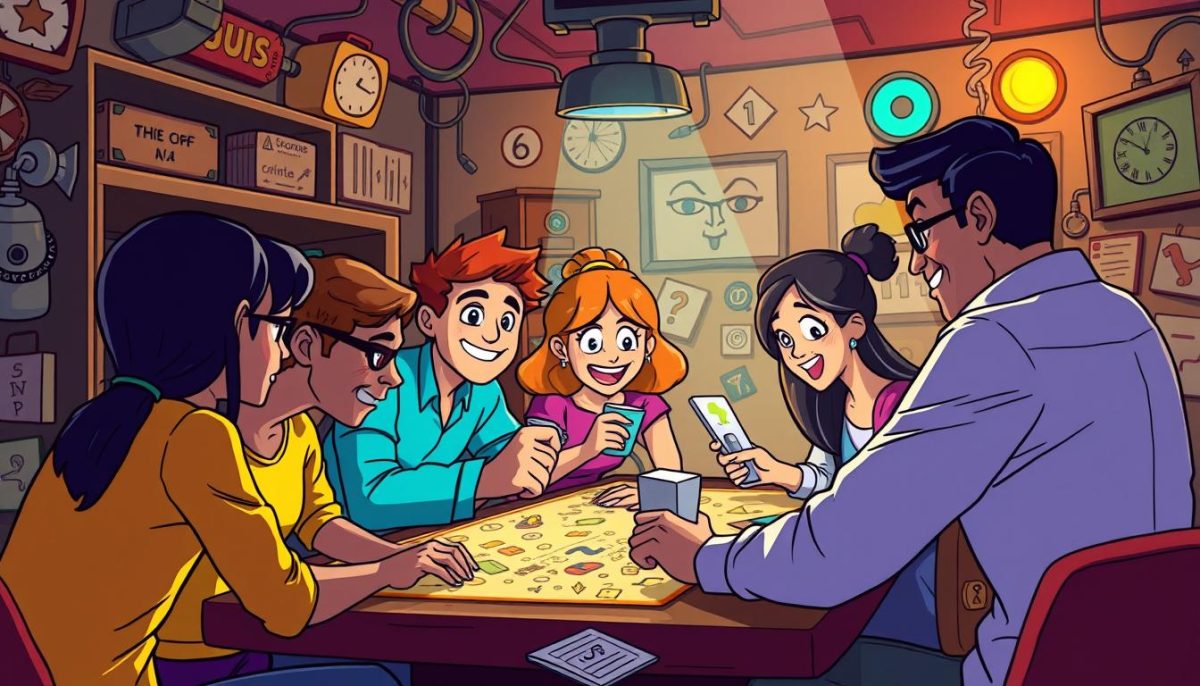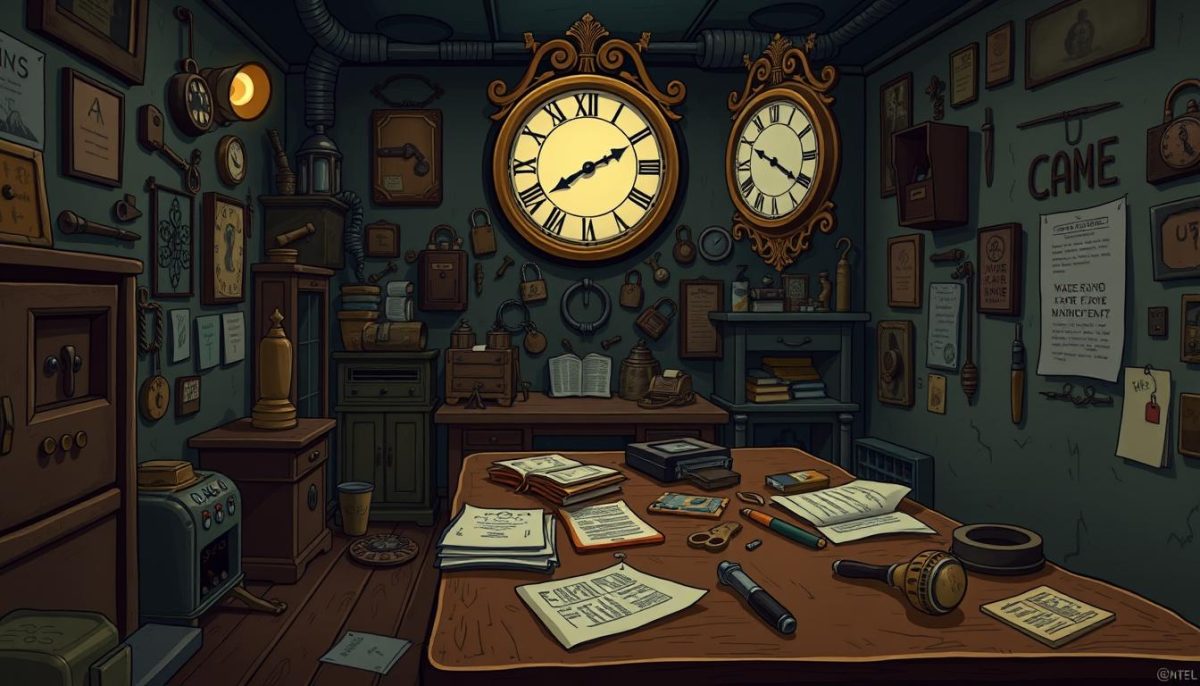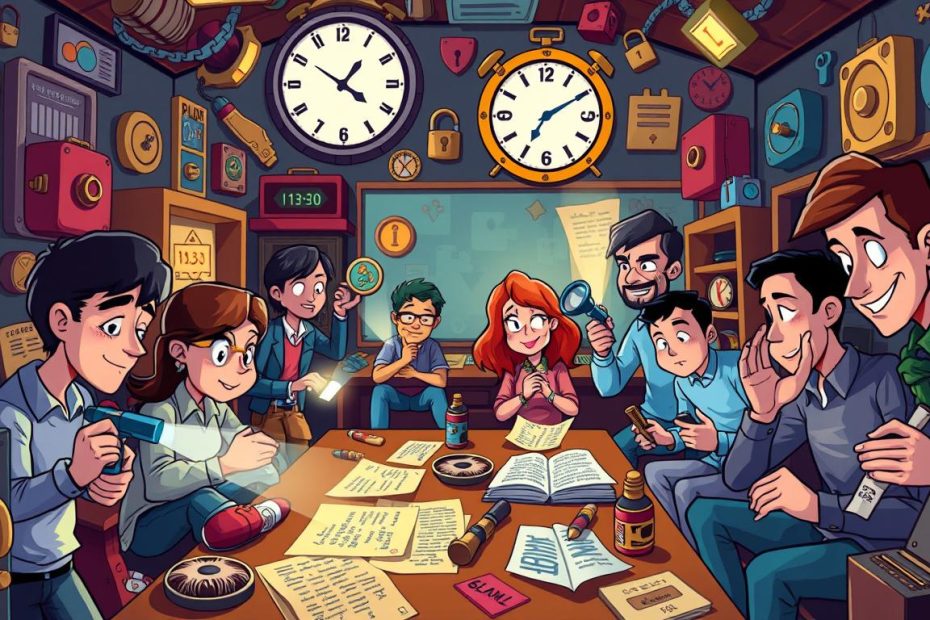In today’s fast-paced work environment, we are always on the lookout for effective ways to enhance team building and foster collaboration among colleagues. Escape rooms have emerged as an innovative solution, providing a unique blend of fun and challenge that promotes communication skills and creative problem-solving. Within a set time limit, we work together to solve intricate puzzles, strengthening our interpersonal relationships and team dynamics in the process.
Organizations that engage in these immersive experiences, like The Escape Hunt Experience and Mystery Room, frequently report improved employee morale and cohesion. It turns out that by experiencing challenges together in an escape room, we’re not just escaping from physical spaces; we are breaking down silos and building bridges within our teams to create a more aligned and collaborative workplace.
The Benefits of Escape Rooms for Team Building
Escape rooms offer incredible advantages for fostering team dynamics and collaboration among coworkers. Engaging in these thrilling environments allows participants to enhance communication skills, build trust, and encourage creative problem-solving. Let’s explore how these benefits manifest during the escape room experience.
Promoting Communication Skills
One of the standout escape room benefits is the opportunity to strengthen our communication skills. Inside the room, we must discuss clues, share interpretations, and articulate our thoughts in real-time. This interactive process forces us to be clear and concise while listening attentively to our teammates. Such effective communication practices often carry over into our workplace, leading to more efficient and symbiotic teamwork.
Fostering Trust Among Team Members
Trust building is integral to successful teams, and escape rooms create a perfect atmosphere to nurture this vital component. Navigating challenges together encourages us to rely on each other’s strengths. Facing obstacles in a pressure-packed environment cultivates a sense of security that is crucial for long-term collaboration. Many teams report an improvement in team trust following such experiences, creating a stronger, more cohesive work culture.
Encouraging Creative Problem-Solving
The structured chaos prevalent in escape rooms inspires us to harness our creative problem-solving abilities. We learn to think critically and devise innovative solutions as we confront unique challenges. Rather than sticking to traditional approaches, we explore various strategies with our teammates. This collective creativity not only enhances our individual skills but also teaches us how much more can be achieved when collaborating as a team.

Team Building Through Challenging Missions
Engaging in escape room missions offers us the opportunity to immerse ourselves in real-world scenarios that test our abilities. These environments not only provide a platform for experiential learning but also simulate challenges we might encounter in professional contexts. As we navigate through the complexities of these meticulously crafted puzzles, we begin to understand how our strategies affect outcomes and how to work collectively towards a common goal.
Setting Real-World Scenarios
The design of escape rooms often reflects realistic situations that demand critical thinking and collaboration. These real-world scenarios stimulate discussions about effective strategies and decision-making. They underscore the importance of planning and adaptability. By practicing in such conditions, we can identify areas for growth, making the transition back to our workplaces smoother and more productive.
Learning to Work Under Pressure
Escape room experiences inevitably involve high-pressure situations where time is of the essence. The ticking clock creates a sense of urgency that motivates us to focus fully on our tasks. Through teamwork under pressure, we learn to communicate effectively and support one another. This shared experience not only builds resilience but significantly enhances our ability to manage stress in future endeavors. Participants often leave these scenarios with improved skills in handling pressure, enabling them to maintain composure and achieve results when faced with similar challenges in their professional lives.

How Collaboration Thrives in Escape Rooms
Escape rooms provide the perfect setting for us to engage in collaborative teamwork and strengthen our team relationships. In these dynamic environments, diverse strengths come into play as we tackle challenges together. Participants often discover newfound appreciation for each other’s unique skills, enhancing our collective problem-solving abilities.
Leveraging Different Strengths and Skills
In an escape room, we witness firsthand how various skill sets contribute to our success. Each member brings forth their diverse strengths, making it essential to collaborate effectively. This recognition not only boosts our confidence but fosters an inclusive atmosphere where everyone feels valued. As we navigate puzzles and escape room collaboration tasks, we develop a deeper understanding of how individual contributions can lead to remarkable achievements.
Building Relationships Through Shared Experiences
Engaging in escape rooms creates memorable moments that form the basis for relationship building. The shared experiences of overcoming obstacles together encourage laughter and engagement, helping us to bond more closely. Many teams return from these adventures with enhanced morale and satisfaction, transitioning from colleagues to friends. This camaraderie can lead to a more supportive workplace environment, ultimately benefiting our overall productivity.
Measuring the Impact of Escape Rooms on Team Dynamics
When we set out to explore the influence of escape rooms on our team dynamics, it’s essential to employ various metrics to evaluate their effectiveness. Employee engagement levels often rise after participating in these interactive experiences, illustrating how collaborative exercises can foster stronger connections between team members. The data collected in workplace surveys frequently point to improved communication and reduced conflicts following our escape room adventures.
Companies like The Escape Lounge have published insightful findings on the measurable impact of escape room effectiveness. These reports reveal both quantitative and qualitative enhancements in team efficiency after engaging in escape room challenges. By observing improvements in team performance, we can confidently assert that such activities contribute significantly to creating a more harmonious and productive work environment.
Ultimately, measuring the impact of escape rooms on our team dynamics allows us to understand the benefits of collaborative efforts beyond just fun and games. As we embrace these engaging challenges, we discover novel ways to grow together, enhancing our workplace relationships and overall effectiveness in every project we tackle.
